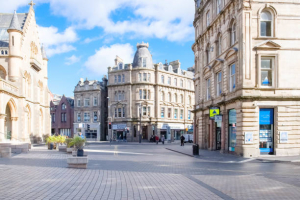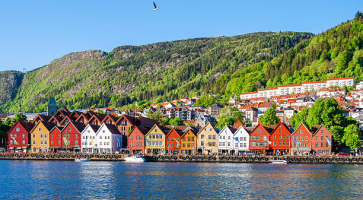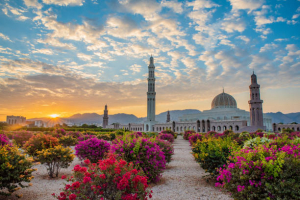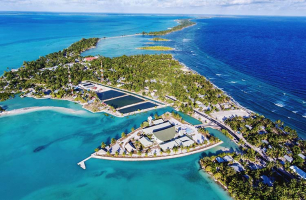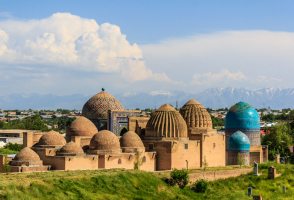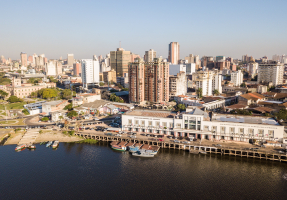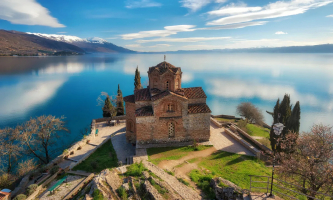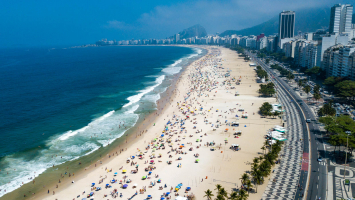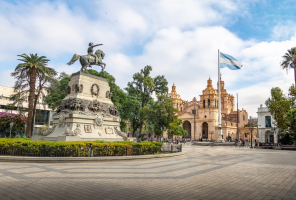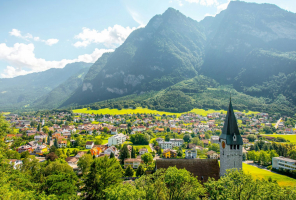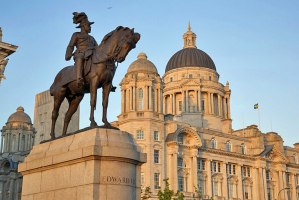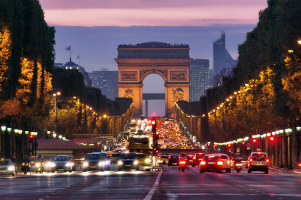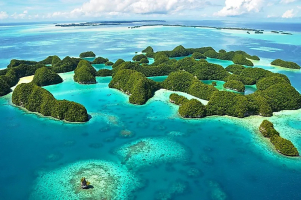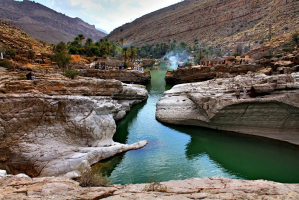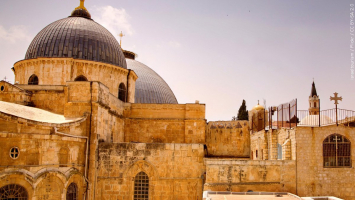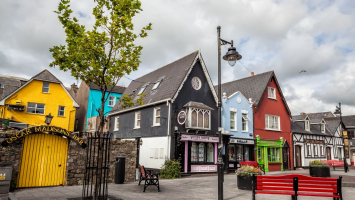Top 10 Reasons to Visit Botswana
Botswana is a landlocked country in southern Africa that shares borders with four other countries: South Africa, Namibia, Zambia, and Zimbabwe. Tourism is a ... read more...major draw for visitors and travelers in this country because of its unique topography and vast wildlife territory. The Kalahari Desert, Okavango Delta, and Chobe National Park are all well-known landmarks in this fascinating world. Are you still not convinced that Botswana should be your next vacation destination? Here is a list of reasons to visit Bolivia.
-
There is never a dull moment on safari, and the best part about going on safari in Botswana is that there are so many options. There are the expected game drives in customised 4x4 vehicles that are well thought out and professionally organized, but there are also boat safaris - a similar setup but with a completely different experience as you meander through the waterways rather than trundling through the African bush.
Then, on guided bush walks with knowledgeable guides and the Bushman, you can explore the African bush on foot. The various environments in which you can walk range from bushland savanna to the vast expanse of the salt pans. For many visitors to Botswana, guided Bushman walks in the Kalahari region are a highlight. Bushman walks concentrate on the smaller and more delicate aspects of the environment, such as local flora, Bushman culture, and the various uses for everything you see.
But why walk when you can see game from the saddle? There are several horseback safari operators and lodges that specialize in this, such as Raw Botswana, but you must be an experienced rider due to the unpredictable nature of wildlife. The beauty of riding a horse is that the wildlife accepts you as part of another four-legged animal. This can be considered as one of the Reasons to Visit Botswana.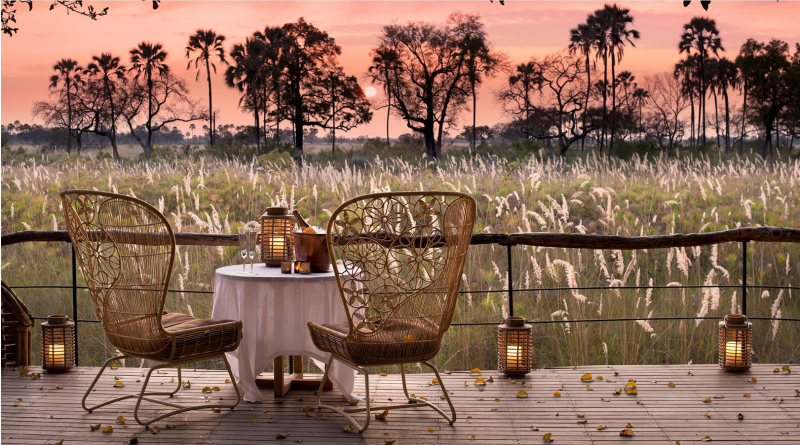
https://www.naturalworldsafaris.com/ 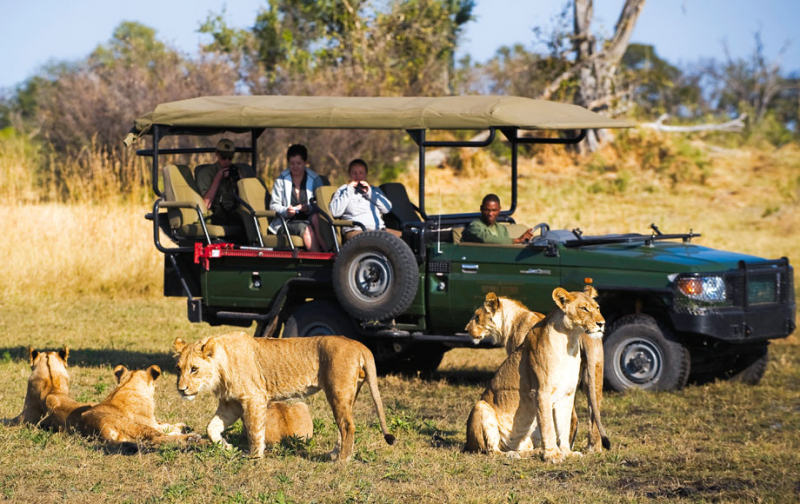
https://2515.cuparwarm.link/ -
Nothing beats arriving at a destination and immediately feeling at ease. Because there are many large private concessions that are inaccessible unless you stay in a lodge inside, tourist traffic is lighter, and visitors are not regarded as a nuisance. In fact, low-volume tourism encourages conservation while also boosting local economies. Botswana has a number of fascinating tribal groups that can be found in the country's rural areas. The San Bushmen, who live near the Okavango Delta, are a popular tribal group. The Jao village community is a shining example of camps connecting with locals, as both Jao Camp and Kwetsani Camp (in the same Jao concession) are dedicated to community upliftment by contributing food, clothing, and support for the elderly and children in need.
Botswana's people will greet you with open arms, eager to show you their incredible country through expert eyes. You'll meet and speak with people who understand and appreciate their homeland, from lodge staff to local residents. Camps in the Kalahari Desert and the Makgadikgadi Pans offer visitors the opportunity to meet these local bushmen and learn how they survive in such harsh conditions, using their vast and ancient knowledge of plants, animal behavior, and survival skills.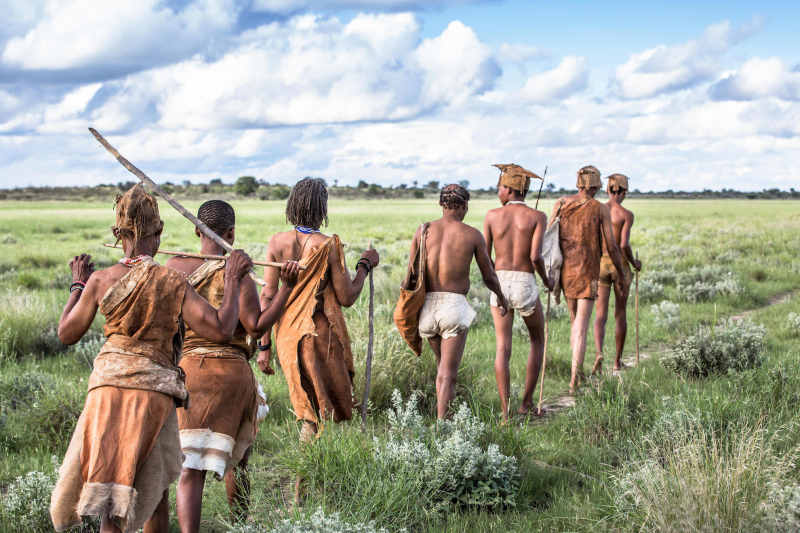
https://purebreaks.com/ 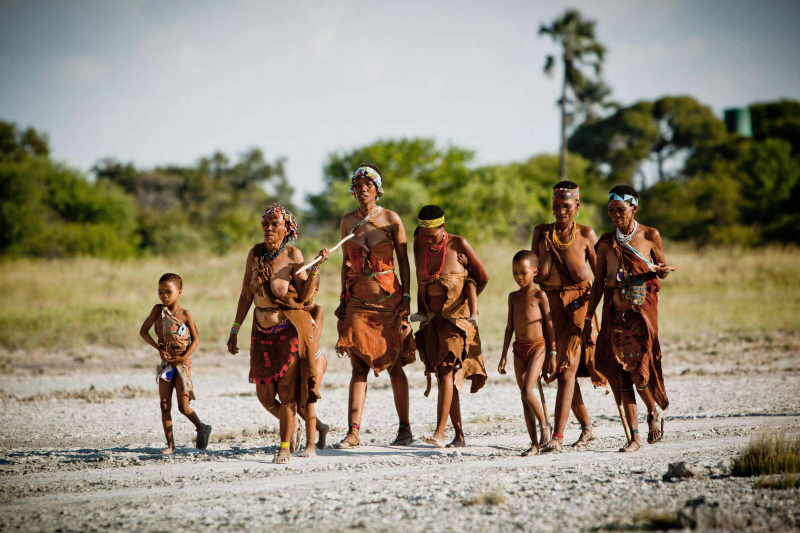
https://www.expertafrica.com/ -
One of the reasons to visit Botswana right now is the luxury and exclusive high standards available to its tourists. It is home to several luxurious lodges that perfectly combine modern conveniences with authentic, environmentally friendly design and materials. Even in the most luxurious and stylish camps, you will sleep under canvas, giving you the opportunity to have an authentic safari experience in total luxury. The country has invested in its tourism industry and is ready to welcome discerning visitors from all walks of life.
The Okavango has lodges that are only accessible by small planes, which is worth inviting travelers looking for a holiday in Botswana. The lodges are stylish enough, blending in with the ecosystem in an environmentally friendly manner. Thanks to careful construction from natural and recycled materials, Jao Camp's stunning villas and suites blend seamlessly into the Okavango Delta. DumaTau, located in the Linyanti Wildlife Reserve, offers breathtaking views of Osprey Lagoon from its eight luxury tented suites, each with its own private plunge pool. After a long day of exploring, relax in the beautiful library or visit one of the expert therapists at the ultra-zen Osprey Retreat spa.
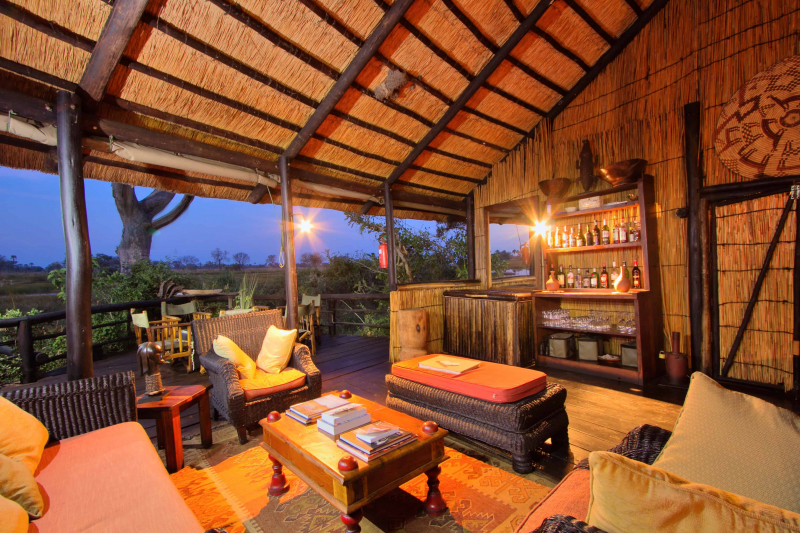
https://realafrica.co.uk/ 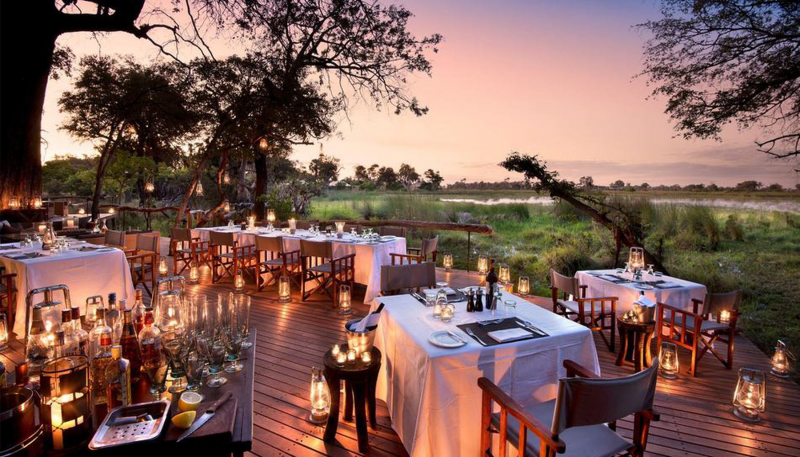
https://www.southerndestinations.com/ -
Botswana is a landlocked country with a low population density. There is an authentic sense of true African wilderness on its various wildlife distribution. Botswana is a haven for nature and wildlife enthusiasts, with more private concessions and fewer national parks. It offers the unusual luxury of having a vast and beautiful landscape almost entirely to yourself. Take the Abu concession in Delta's southwest, which is larger than the Maasai Mara but home to only the Abu and Seba camps, ensuring no crowds of tourists, tour buses, or high-rise hotels.
From the rolling plains to the infinite sky above, space is the one word that comes to mind when people think of Botswana. The remote location of lodges will make you appreciate the tranquility as modern technology struggles to keep up with nature's offerings. The only sounds you should get used to are elephants rumbling and birds chirping as they fly overhead. Because these sounds are not constant, they provide you with moments of complete tranquility and ultimate peace. As a result, it's an ideal destination for anyone looking to escape, explore, relax, and reset.
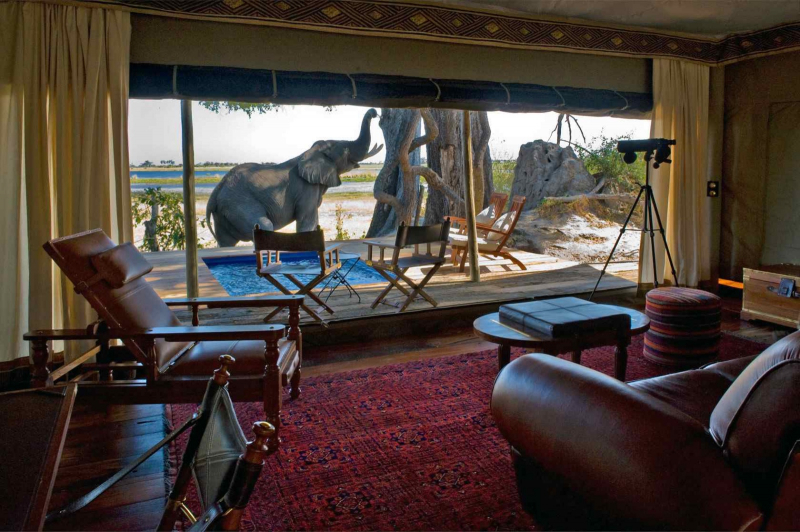
https://blog.sunsafaris.com/ 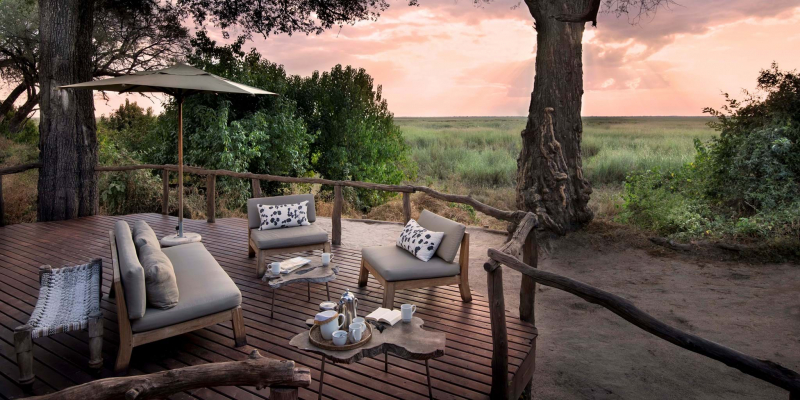
https://yellowzebrasafaris.com/ -
Wildlife migrations are breathtaking natural phenomena that used to occur all over the world. However, with the spread of Homo sapiens, particularly urban areas and fences, many routes have been cut off, and only a few truly large animal migrations remain. Animal movements in Botswana have long been documented: anecdotally, much of the wildlife, including zebras, wildebeest, buffalo, and elephants, moves seasonally. Many of these animals appear to spend the dry months near the river systems - the Chobe, the Kwando-Linyanti, and the Okavango - and then migrate into the vast vegetated sand-sheet of the Kalahari for the wet months.
Thousands of zebras migrate through the Makgadikgadi Pans during November, when the rains begin, making it Africa's second-largest mass movement of animals. The sight of migrating zebras is always stunning, with the surrounding scenery ideal for photography. The zebra migration is arguably Botswana's best-kept secret, as few people are aware of it. However, you should go to Botswana and watch as these beautiful animals move in search of lush vegetation, with lions and hyenas stalking them and ready to devour them.One significant advantage of witnessing the zebra migrations is that they are most dramatic during Botswana's low tourism season, which means lower lodge rates and fewer safari vehicles. However, driving can be difficult, if not impossible, during the rainy season. The Boteti River, on the western edge of Makgadikgadi Pans National Park, is one of the area's only permanent water sources for thirsty zebras, which means that large concentrations of zebra can be found there as herds move in and out of the Pans area.
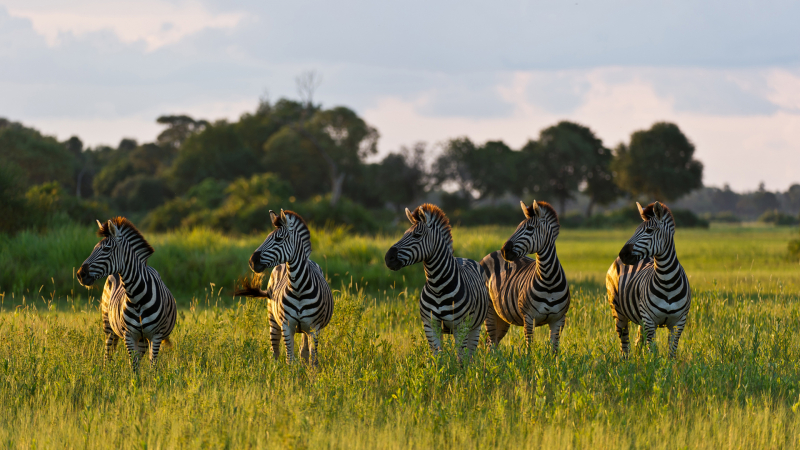
https://www.naturalworldsafaris.com/ 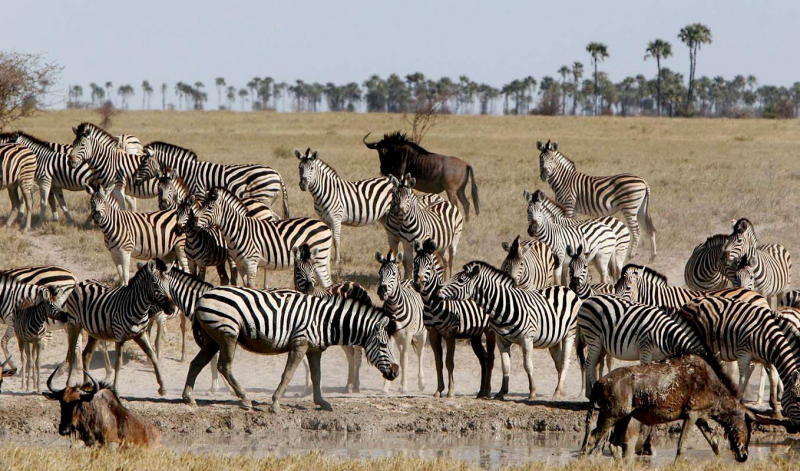
https://artofsafari.travel/ -
Botswana's local delicacies and dishes are a must-try and superb. Botswana's cuisine is distinct, but it shares some characteristics with other Southern African cuisines. Setswana cuisine includes pap, samp, vetkoek, bogobe, and mophane worms. Seswaa, or salted mashed-up meat, is a Botswana specialty. Botswana is thought to be the birthplace of watermelons. Morogo wa dinawa, madila, and dikgobe are some other dishes. It can be seen as one of the Reasons to Visit Botswana.
It makes Batswana proud to have their own cuisine. The majority of the relish is obtained locally in Batswana. Beef, goat meat, sheep, tswana chicken, Mophane worms, and fish are among them. Batswana also make refreshing drinks at home with water melon, morula, and ginger powder. Typically, the melon is pre-prepared with sour milk and stored for later use.
The Batswana are also skilled at food preservation. They preserve meat, for example, by cutting it into small lengths like strings and drying it. This type of meat is known as digwapa. They also collect, cook, and dry bean leaves. Mageu is also commonly made from leftover porridge or pap by Batswana. Some tribes also dry not-too-bad or rotten meat to be used as relish for a long time. Mokungwana is the name given to this type of meat. Batswana have always valued their food. They consider it as part of their culture just like clothes and language.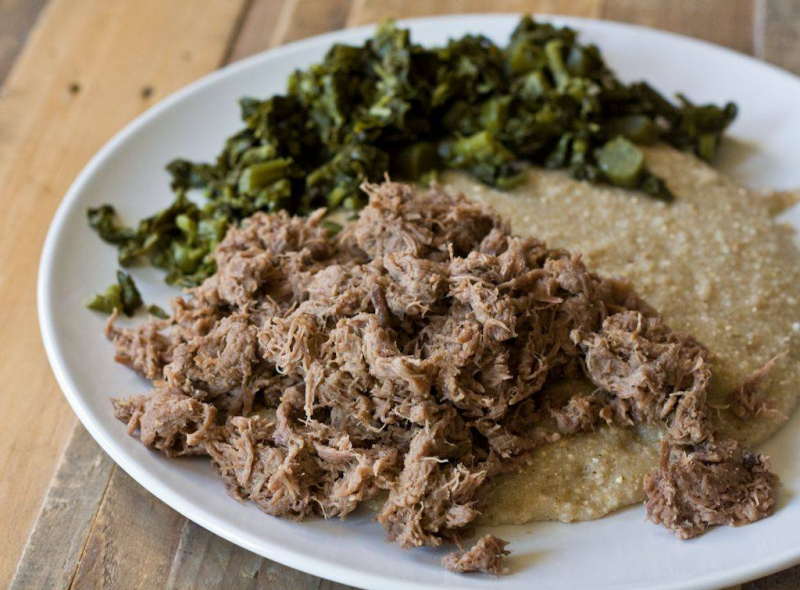
https://www.facebook.com/ 
https://www.tasteatlas.com/ -
Have you ever wanted to see wild elephants up close and personal? Take a look at the Linyanti Private Reserve. The reserve protects two ancient wildlife corridors, which are home to one of the world's largest elephant herds. You're almost certain to see one - or several. During the dry winter months, elephants congregate near waterways (May to August). This spectacular can be seen from front row seats on the deck at Dumatau. It's impossible not to feel a newfound respect and admiration for these majestic creatures as you watch them play and cool off in the water.
Chobe National Park is also a haven for the reviled African elephant, which can be found in greater numbers here than anywhere else on the planet. Poaching is driving these gentle giants to the brink of extinction, but Botswana's conservation efforts have kept the local population stable. It is the most accessible and frequently visited area of Botswana's big game country, and it is famous for its large herds of elephants, which can number in the thousands.Nothing compares to birdwatching in the open lands to birdwatching in the rainforest, where dense forest vegetation obscures the beautiful sighting. A birding safari in Botswana's hot and humid summer months is also an unforgettable experience. Colorful plumage and raucous mating calls add a unique energy to the skies above the country's most beautiful wilderness areas. The sandy riverbanks and surrounding vegetation are transformed into a feast for migratory and resident bird species, both aquatic and terrestrial, who come to breed and raise their young in this natural paradise. While the dry winter season may be ideal for excellent animal sightings, the months of November to April are ideal for avid birders. Pack your binoculars, cameras, and bird books (or apps) for a Botswana birding safari.
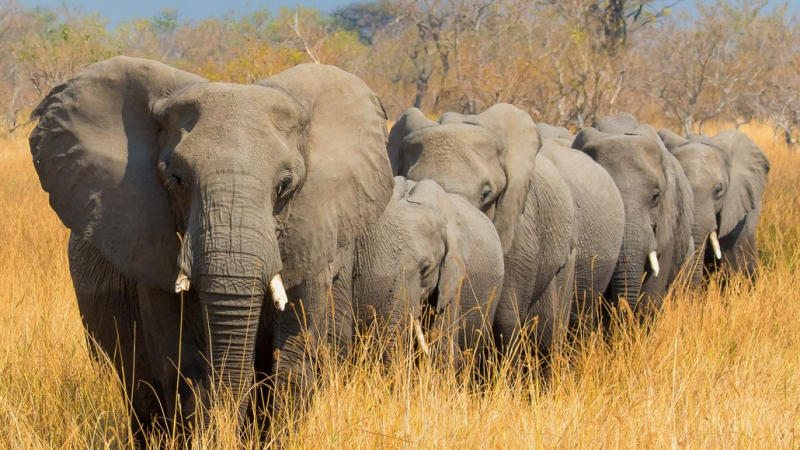
https://www.sciencenews.org/ 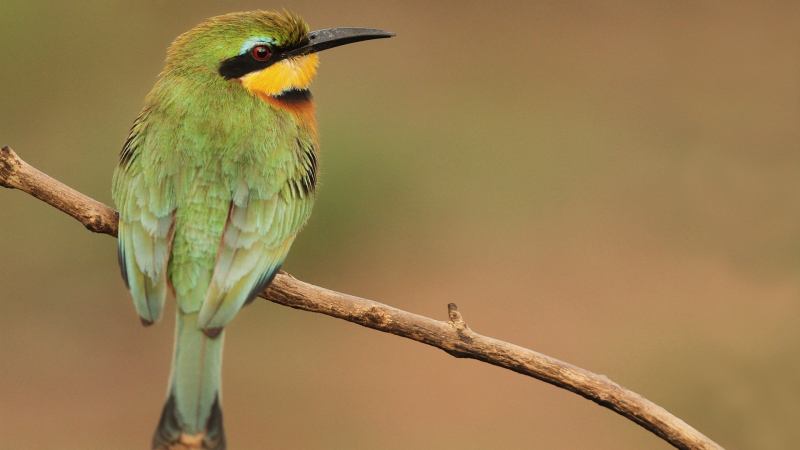
https://www.andbeyond.com/ -
The excellent staff at each of the lodges contributes to the exclusivity and luxury. The local guides are absolutely fantastic, and their knowledge is extraordinary. Many of the guides live locally and have spent the majority of their lives in the bush, so they are in tune with nature and the environment; it is second nature to them, which is gold dust to visitors. Many lodges have both a guide and a tracker on each vehicle, which may seem excessive at first, but once you've been on a game drive with them, you'll understand why.
The guide is there to provide guests with fascinating background and information about the area, the wildlife, the birdlife, and even the minuscule flora and fauna that we seem to pass by, whereas the tracker is solely there to keep an eye out for footprints and other signs to determine the location of those more elusive animals such as lion, wild dog, hyena, civet, or whatever else that you are interested in seeing. The tracker will direct the guide as to which way to go for what based on information gleaned from simply looking at the ground. A safari in Botswana will provide you with an unforgettable experience.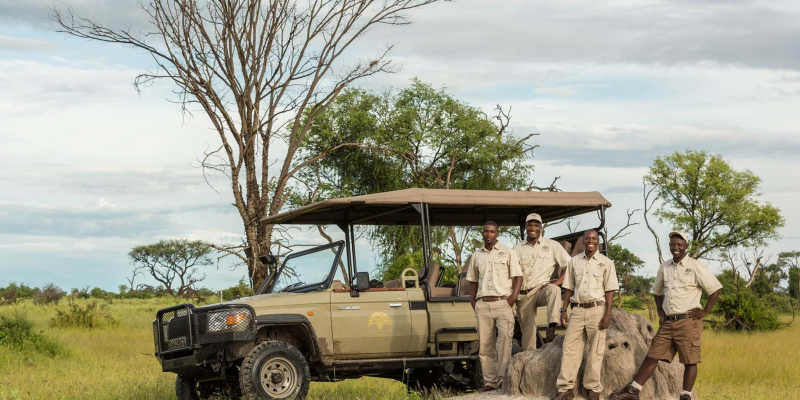
https://www.andbeyond.com/ 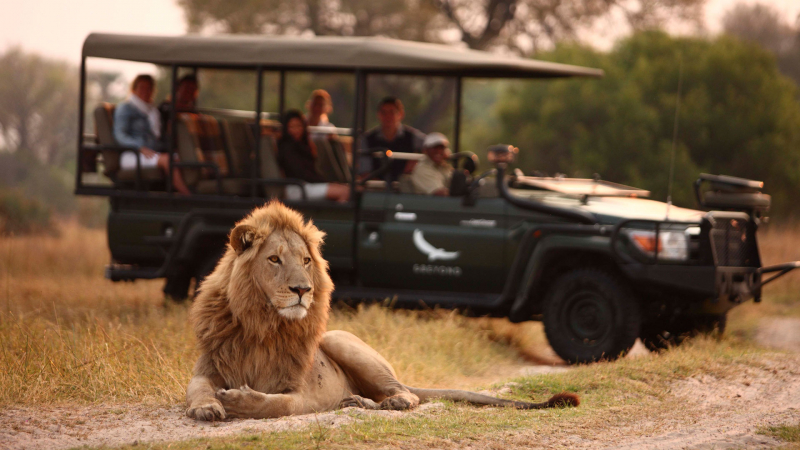
https://yellowzebrasafaris.com/ -
Former Botswana President Seretse Khama once said that a nation without culture is a lost nation, and Botswana is far from being that. Batswana are very proud of their culture, which they share with the many visitors who come to the country each year. Botswana is made up of various tribes, and many Batswana are still steadfast when it comes to their culture and traditions that were practiced many years ago. It can be considered as one of the Reasons to Visit Botswana you should know.
Batswana are a proud, strong people with a strong sense of unity committed to their country's democratic and peaceful development. The modern way of life has permeated the cities, but traditions can still be found in rural communities through clothing, housing, dance and performances, music, food, and rituals, all of which are rooted in the Setswana language.
The baobab tree, one of the country's most iconic symbols, has been used for centuries by village elders to discuss local issues and pass down rulings. For many Batswana, the massive trees remain the focal point of rural life. The hunter-gatherer Bushman communities stand apart, with their own ancient culture and way of life, though many tribes have been relocated from their ancestral lands and forced to farm by the government since the 1990s.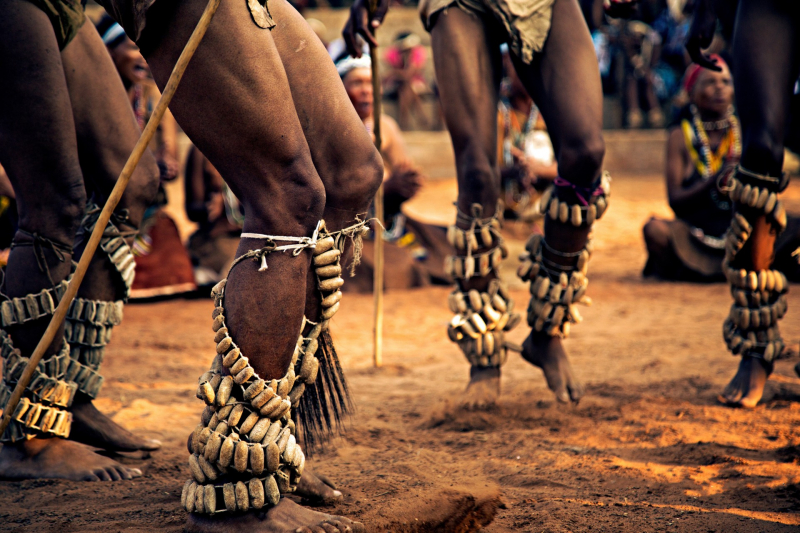
https://www.travellocal.com/ 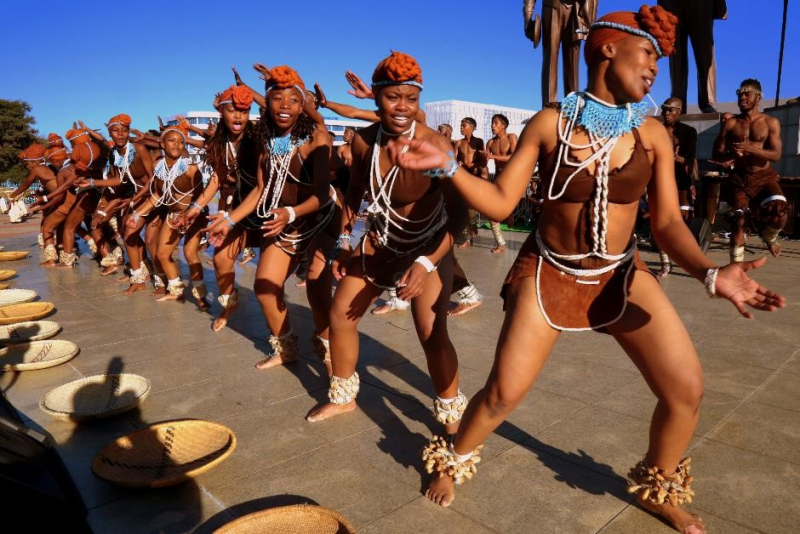
https://str8talkmagazine.com/ -
Botswana is known for its famous wildlife, which is known for its peculiar animal behavior and large concentrations of animals near water sources. All of this is complemented by stunning vistas and landscapes, as well as seasons that are very different from the ordinary.
Though it would seem needless to inquire when the best time is to visit Botswana in order to guarantee the greatest photos, there are a lot of distinctions between the different seasons. Each season's sunsets and sunrises are equally dramatic as the next due to variations in the daytime light throughout the year. The animals congregate around constant water sources and the flora is scarce during the dry season, making for dramatic imagery beneath a sky stained with smoke and dust. During the rainy season, the sky is bright and blue, complementing the lush greens of the vegetation. Botswana is the ideal location for shooting all year long.
Botswana's rich diversity and gorgeous scenery make it the ideal location for wildlife photography. The animals in Botswana are used to vehicles and do not move when one approaches, making for the ideal up-close shots. In fact, a lot of photographers can attest that Botswana is the ideal place to take pictures of people looking at each other. Photographers in Botswana have access to chances rarely available in other parts of Africa, such as regular sightings of lions and other animals crossing water.
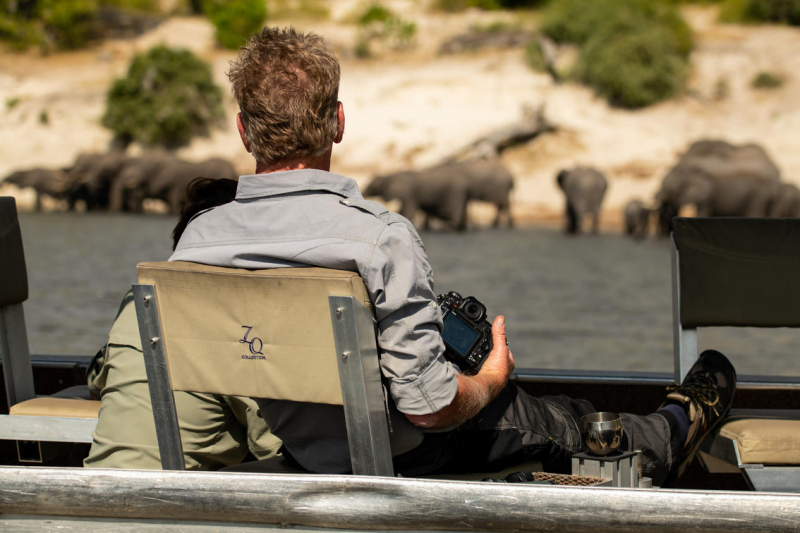
https://mobile.twitter.com/ 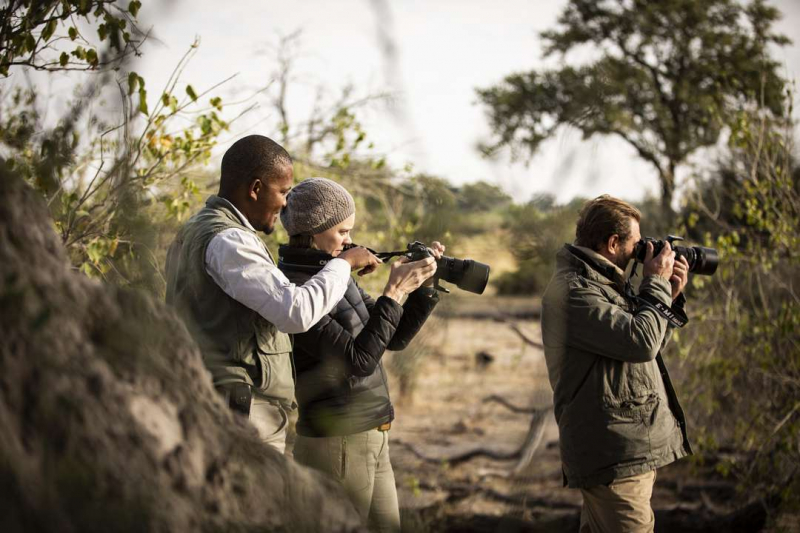
https://wilderness-safaris.com/













